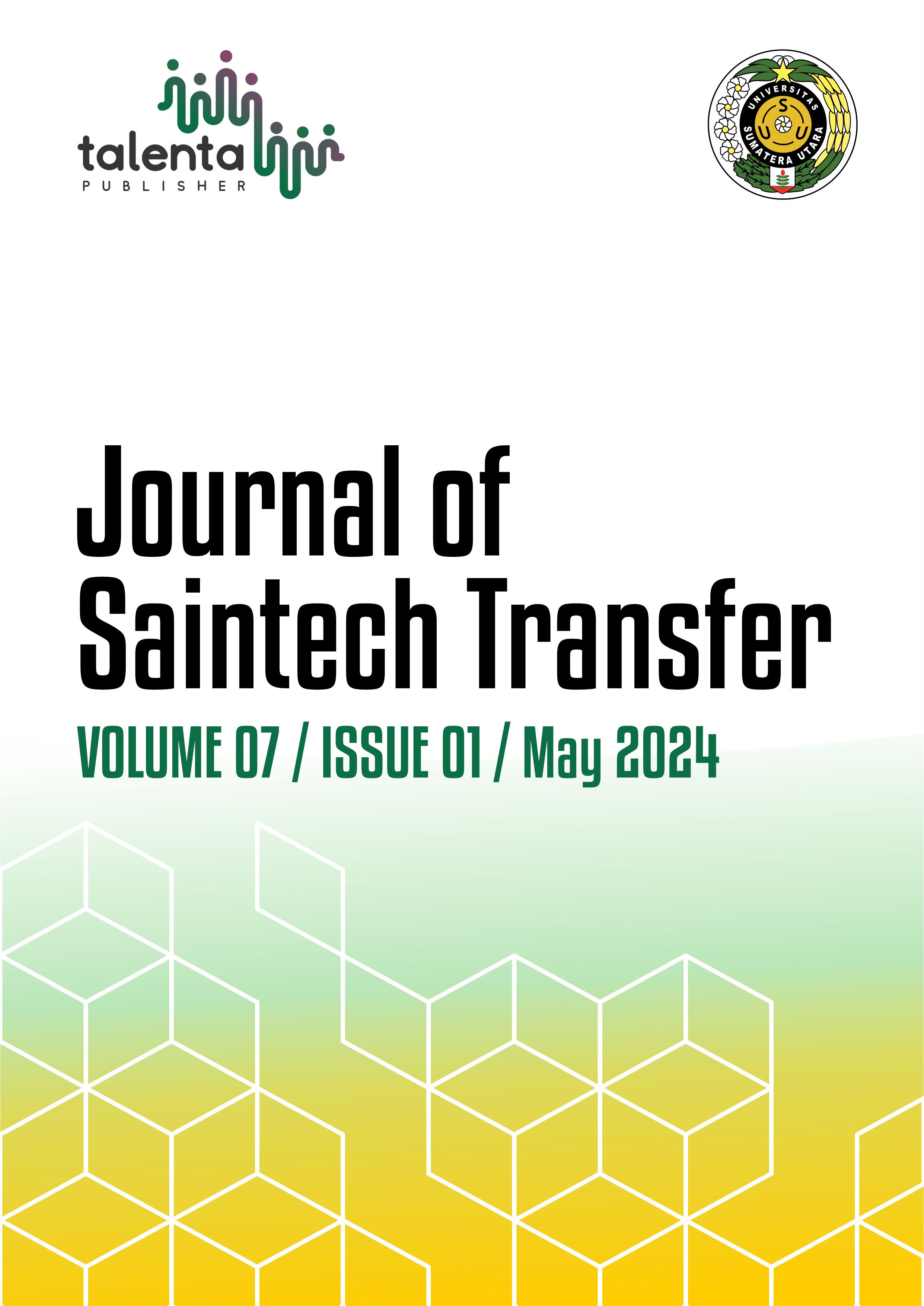Mathuiz-B Android-Based Application Program to Overcome Dissimilarity in Mathematics Fields of Sabilurrosyad Islamic Junior High School Students
DOI:
https://doi.org/10.32734/jst.v7i1.15737Abstract
Â
Sabilurrosyad Islamic Middle School is a junior high school in the village of Karangbesuki. The geography school is located on the edge of Malang City and far away from the center of Malang City. Students entering junior high school are big children from local public elementary school graduates. Sabilurrosyad Islamic Middle School is the school that found its students with diverse ability different academics. _ Problems faced _ partner is different competence academic field mathematics in students new Sabilurrosyad Islamic Middle School. Based on the results analysis situation and SWOT analysis, the team devoted the public to the solution by creating and giving application edugames (MATHUIZ-B) that can used by schools. For participants assigned to educate new order capabilities, cognitive students can be uniform with standard junior high school level. The method of this community activity begins with preparation, making the Mathuiz-B application, outreach to teachers and principals of Sabilurrosyad Middle School, and Submission of the application so that service partners can use it. On activities devotion public, team devotion will provide an application manual book and a book regarding successful strategies for learning mathematics for entering junior high school.
Downloads
References
M.M. Ira Madiana, B. Alqadri, “Penerapan Kebijakan Sistem Zonasi serta Dampaknya terhadap Kesetaraan Hak Memperoleh Pendidikan, [Implementation of the Zoning System Policy and its Impact on Equal Right to Education]†Ilmu Profesi Pendidik., vol. 7, no. 2c, 2022.
T. W. Riski, “Dampak Pemberlakuan Sistem Zonasi Terhadap Mutu Sekolah Dan Peserta Didik, [The Impact of the Zoning System on School Quality and Learners]†EDUSAINTEK J. Pendidik. Sains dan Teknol., vol. 7, no. 1, 2020.
J. C. Jessica dan dkk, “Learning Loss Akibat Pembelajaran Jarak Jauh Selama Pandemi Covid-19 di Indonesia, [Learning Loss Due to Distance Learning During the Covid-19 Pandemic in Indonesia]†Semin. Nas. Stat. X 2021. Publ. by Dep. Stat. FMIPA Univ. Padjadjaran, 2021.
A. Marera, “Dinamika Pembelajaran Masa Pandemi Covid-19: Kekhawatiran Learning Loss Pada Siswa, [Learning Dynamics during the Covid-19 Pandemic: Learning Loss Concerns in Students]†DiklabioJurnal Pendidik. dan Pembelajaran Biol., vol. 6, no. 2, pp. 160–172, 2022.
K.Y. Dea, Z. Nabila, “Peran Guru Dalam Pembelajaran Pada Siswa Sekolah Dasar, [Teacher's role in learning for primary school students]†Fondatia J. Pendidik. dasar, vol. 4, no. 1, pp. 41–47, 2020, [Daring]. Tersedia pada: https://ejournal.stitpn.ac.id/index.php/fondatia.
H.S. Unik, A. Niar, “Peran Teknologi Pendidikan Dalam Pembelajaran, [The role of educational technology in learning]†Islam. J. Keislam. dan Ilmu Pendidik., vol. 3, no. 1, pp. 123–133, 2021.
N. Dwi, D. Ayuningtias, “Penerapan Edugame Interaktif Untuk Pengenalan Pakaian Adat Nasional Indonesia, [Application of Interactive Edugame for the Introduction of Indonesian National Customary Clothing]â€, Jurnal Teknik Industri, Mesin, Elektro dan Ilmu Komputer, vol. 8, no. 1, 2016.
A. Dhenok, “Analisis Perbedaan Kemampuan Kognitif Siswa Berdasarkan Student Happiness yang Dihasilkan Dari Penggunaan Game Komputer Oleh Siswa TK Kelompok B Kelas B2 di Sekolah TK Kristen Petra 9, [Analysis of Differences in Students' Cognitive Ability Based on Student Happiness Resulting from the Use of Computer Games by Kindergarten Group B Class B2 Students at Petra 9 Christian Kindergarten School]†Petra Bus. Manag. Rev., vol. 2, no. 2, 2016.
R. Hidayatullah, B. Riadi, G. E. Putrawan, A. Maydiantoro, “Pelatihan Learning Management System (LMS) Berbasis Web Bagi Guru Seni Se-Provinsi Lampung, [Web-based Learning Management System (LMS) Training for Art Teachers in Lampung Province]†Pros. Semin. Nas. Hasil-Hasil Pengabdi. Kpd. Masy. 2018, no. 1, 2018.
A. Haleem, M. Javaid, M. Qadri, R. Suman, “Understanding the role of digital technologies in education: A review,†Sustain. Oper. Comput., vol. 3, pp. 275–85, 2022.
A. Thomas, A. Smith, K. Kamal, L. Gordon, “Should You Use Frequent Quizzing in Your College Course? Giving up 20 Minutes of Lecture Time May Pay Off,†J. Appllied Res. Mem. Cogn., vol. 9, no. 1, pp. 83–95, 2020.
S. Heitmann, A. Grund, S. Fries, K. Berthold, J. Roelle, “The quizzing effect depends on hope of success and can be optimized by cognitive load-based adaptation,†Learn. Instr., vol. 77, 2022.
U. Rosidin, I. Rakhmawati, dan D. Nina Kadaritna, “Pelatihan Aplikasi Learning Management System Bagi Guru Sman 1 Gedong Tataan Untuk Meningkatkan Kualitas Pembelajaran Daring Learning Management System Application Training for Sman 1 Gedong Tataan Teachers To Improve Quality Learning Online, [Learning Management System Application Training for Sman 1 Gedong Tataan Teachers To Improve Quality Learning Online Learning Management System Application Training for Sman 1 Gedong Tataan Teachers To Improve Quality Learning Online]†J. Pengabdi. Nas., vol. 2, no. 1, pp. 41–50, 2021, [Daring]. Tersedia pada: https://jurnal.polinela.ac.id/index.php/JPN/index.
P. Anunpattana, M. Khalid, H. Iida, W. Inchamnan, “Capturing potential impact of challenge-based gamification on gamified quizzing in the classroom,†Heliyon, vol. 7, no. 12, 2021.
Downloads
Published
How to Cite
Issue
Section
License
Copyright (c) 2024 Journal of Saintech Transfer

This work is licensed under a Creative Commons Attribution-ShareAlike 4.0 International License.















